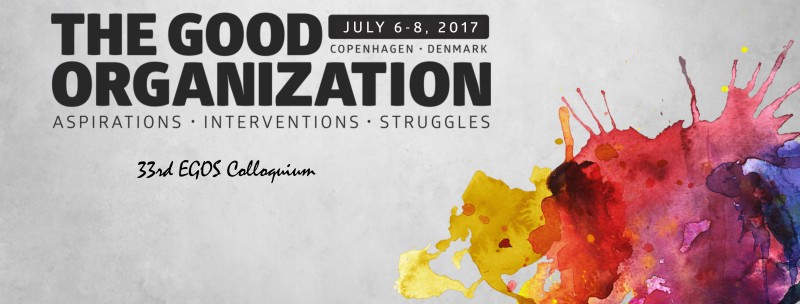Program
PDW 03:Institutional Theory: Theoretical Contributions and their Methodological Basis
Wednesday, July 5, 2017, 09:00–13:00
Copenhagen Business School (CBS) – Kilen, Kilevej 14 A/B, Copenhagen-Frederiksberg
– Main room: K 474 (4th floor)
– Break-out rooms: K 248, K 249, K 250 (2nd floor)
Convenors:
Gili S. Drori, Hebrew University of Jerusalem, Israel
Tammar B. Zilber, Hebrew University of Jerusalem, Israel
Facilitators:
John Amis, The University of Edinburgh Business School, United Kingdom
Candace Jones, The University of Edinburgh Business School, United Kingdom
Johanna Mair, Hertie School of Governance, Germany
Kamal A. Munir, Cambridge Judge Business School, United Kingdom
William Ocasio, Kellogg School of Business, Northwestern University, USA
Jonas Søderlund, BI Norwegian Business School, Norway
Jörg Sydow, Freie Universität Berlin, Germany


